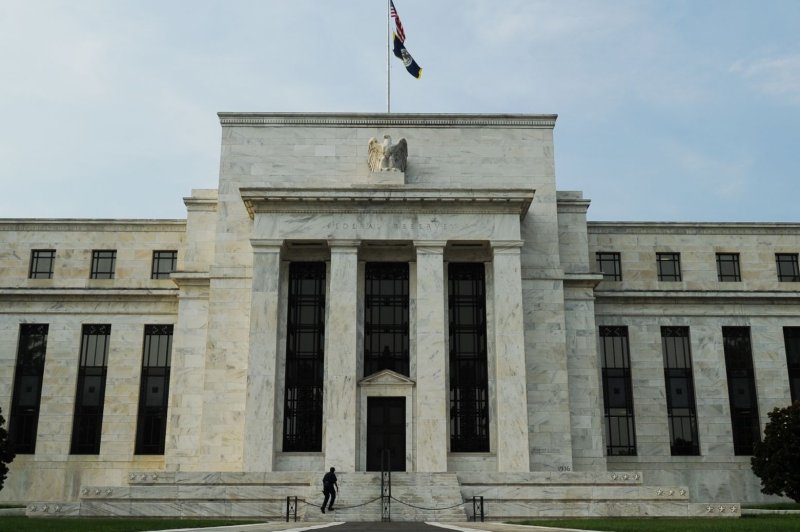The United Nations is urging the U.S. Federal Reserve, in Washington, D.C., and central banks in other wealthy nations, to stop raising interest rates or risk a global recession that will hurt developing countries. File photo by Alexis C. Glenn/UPI |
License Photo
Oct. 3 (UPI) -- The United Nations is accusing the United States, and other rich countries, of taking an "imprudent gamble" to slow soaring inflation through interest rate hikes that threaten a global recession and "worse damage than the financial crisis of 2008 and the COVID-19 shock in 2020."
The Trade and Development report, published Monday by the U.N. Conference on Trade and Development, warns "the world is headed towards a global recession and prolonged stagnation unless we quickly change the current policy course of monetary and fiscal tightening in advanced economies."
In the report, the UNCTD demands the Federal Reserve and other central banks stop raising interest rates, saying the hikes stifle growth and will hit developing countries the hardest.
"This year's interest rate hikes in the United States are set to cut an estimated $360 billion of future income for developing countries, excluding China, and signal even more trouble ahead," the report said.
Last month, the Federal Reserve raised the benchmark interest rate by another 0.75 percentage points in its latest move to fight the highest inflation in 40 years, pushing the federal funds rate to 3.25% after it had remained near zero as recently as March.
Fed Chairman Jerome Powell said the central bank takes into account the impact its policies have on the rest of the world, but foresees more rate hikes in the future to bring inflation under control.
A one percentage point rise in the Fed's key interest rate lowers economic output by 0.5% in wealthy nations. The same rate hike hurts poorer countries more by lowering economic output by 0.8%, the report estimated.
In addition to rate hikes in the United States to fight inflation, the Bank of England has raised interest rates to 2.25%, the highest level since 2008, and is expected to go as high as 6%.
"Any belief that they will be able to bring down prices by relying on higher interest rates without generating a recession is an imprudent gamble," the report argued.
"The real problem facing policy makers is not an inflation crisis caused by too much money chasing too few goods, but a distributional crisis with too many firms paying too high dividends, too many people struggling from paycheck to paycheck and too many governments surviving from bond payment to bond payment," Richard Kozul-Wright, director of the Division on Globalization and Development Strategies for UNCTAD said in a statement.
Besides rapid interest rate increases and fiscal tightening in advanced economies, the report also blames crises from the COVID-19 pandemic and the war in Ukraine.
The report says some countries were already showing signs of debt distress, including Zambia and Sri Lanka, before the pandemic with climate change threatening economic stability in Pakistan.
UNCTD says political leaders in advanced economies are relying on the aggressive policies of the 1970s and 1980s to squeeze out inflation, which the report says is inappropriate for the world's current condition.
"There's still time to step back from the edge of recession," Rebeca Grynspan, secretary-general of UNCTAD said in a statement. "We have the tools to calm inflation and support all vulnerable groups. This is a matter of policy choices and political will. But the current course of action is hurting the most vulnerable, especially in developing countries and risks tipping the world into a global recession."















